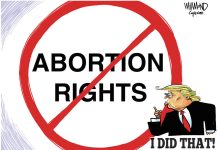This is a note of hope to the General Assembly’s Funding Indiana’s Roads for a Stronger, Safer Tomorrow Task Force, known by its friends and family as the FIRSST task force.
The hope is FIRSST will continue the work done on House Bill 1002 modernizing Indiana’s road financing policies. That bill has begun its travels and travails through the sausage machine of state government.
The guiding factors in a road finance bill, where new construction is not the centerpiece, should be road use and safety, plus changes in the costs of maintenance and reconstruction.
House Bill 1002 allows a 10 cent increase in the 18 cent tax per gallon of gasoline. This is double the increase in consumer prices since the last change in 2003. Was 10 cents an estimate of what a gullible public would accept?
Or is it because the bill creates an index for future increases based on the changes (does that include decreases?) in consumer prices and personal income? (We cannot believe legislators know how personal income is determined, and how it overstates income as any ordinary citizen would define it.)
The gas tax was a good idea for the past 100 years. It was a good proxy for distance traveled. Incidentally, it was also a moderate measure of vehicle weight, efficiency, pollution and speed of travel.
In recent decades, improvements in vehicular efficiency have decreased the revenue potency of the gas tax. To raise the tax further encourages drivers to choose vehicles and usage patterns that reduce gas consumption. The tax is no longer a road use tax as much as an environmental statement that many legislators would not like to consider.
If we want to tax road use, let’s get serious. The proposed annual $150 tax on electric vehicles simply punishes car owners who decided not to support the petroleum cartel here and abroad. (Full disclosure: I own a Prius, a hybrid not found in the legislation I’ve read.)
Likewise, the proposed annual $15 increase per vehicle produces revenue, but abandons the concept of a use tax. Instead, institute odometer readings. It’s easy with the EZ Pass we’ll all have when we start tolling selected roadways.
Toll roads make sense. You want to drive a premium road, you pay a premium price. With EZ Pass in your car, police can monitor your speed, which they rarely do now.
Information about a vehicle, its weight, footprint, horsepower, etc., is available from the manufacturer and has a bearing on safety and congestion.
The elephant in the conference room is taxing trucks. Trucking companies don’t want to pay for the highway damage trucks do. Manufacturers and merchants don’t want to pay higher trucking fees and consumers don’t want to pay higher prices. Drones are not ready to take the big loads, yet.
FIRSST has its work cut out for the next two years. Let’s hope they are courageous enough for the task.
Morton Marc
us is an economist, writer and speaker who may be reached at [email protected].




